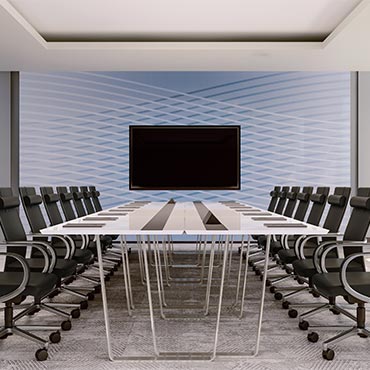Carpeting: Commercial Cut/Uncut

Navigating the World of Commercial Cut/Uncut Carpet
Introduction
In the domain of commercial interiors, the choice of floor covering is pivotal. It's not just a matter of aesthetics but also functionality, durability, and comfort. Among the various options available, commercial cut/uncut carpet stands out for its unique blend of visual appeal and practicality. This article aims to guide architects, interior designers, and commercial buyers through the intricacies of selecting and implementing commercial cut/uncut carpet in their projects.
Understanding Cut/Uncut Carpet
Cut/uncut carpet, also known as cut and loop carpet, is a hybrid type of carpet that combines both cut and loop pile fibers. This blend allows for a vast array of textures and patterns, making it a versatile choice for commercial spaces. The cut fibers provide a plush, soft feel underfoot, while the looped fibers add durability and resistance to matting and crushing.
Design Flexibility
One of the main advantages of cut/uncut carpet is its extensive design versatility. It can be manufactured in a multitude of colors, patterns, and textures, offering endless possibilities for customization. This versatility makes it a favorite among architects and interior designers who are looking to create a unique ambiance in commercial settings such as offices, hotels, and retail spaces.
Durability and Maintenance
In commercial environments, where foot traffic is high, durability is a key concern. Cut/uncut carpets are known for their resilience. The looped portions of the carpet are particularly hard-wearing, while the cut portions provide a comfortable walking surface. When it comes to maintenance, these carpets require regular vacuuming and periodic professional cleaning, but they are generally more forgiving than other high-end carpet options, making them a practical choice for busy commercial spaces.
Acoustic and Comfort Benefits
Beyond aesthetics, cut/uncut carpets offer functional benefits. They are excellent at sound absorption, reducing noise levels in bustling commercial environments. This acoustic advantage is particularly beneficial in office settings, where noise reduction can enhance productivity. Additionally, the soft texture of the carpet contributes to a sense of comfort and warmth, making commercial spaces more inviting.
Environmental Considerations
Sustainability is increasingly important in the world of commercial design. Many manufacturers of cut/uncut carpet are responding to this demand by using recycled materials and implementing eco-friendly manufacturing processes. For architects and designers committed to green building practices, selecting a carpet with a low environmental impact is crucial.
Installation and Cost
When considering cut/uncut carpet, it's important to factor in installation and cost. Installation of this type of carpet can be more complex than other flooring options, requiring professional expertise. The cost can vary widely depending on the quality, design, and manufacturer, but generally, cut/uncut carpet offers a good balance between luxury and affordability, making it an attractive option for commercial budgets.
Conclusion
For architects, interior designers, and commercial buyers, cut/uncut carpet presents a compelling choice for commercial floor covering. Its design flexibility, durability, acoustic benefits, and potential for sustainability make it an all-encompassing solution for various commercial environments. By considering factors such as design, maintenance, environmental impact, and cost, professionals can make informed decisions that enhance the functionality and aesthetic appeal of their commercial spaces. As the world of commercial interior design continues to evolve, cut/uncut carpet stands out as a flooring option that adeptly balances the demands of beauty, practicality, and sustainability.
